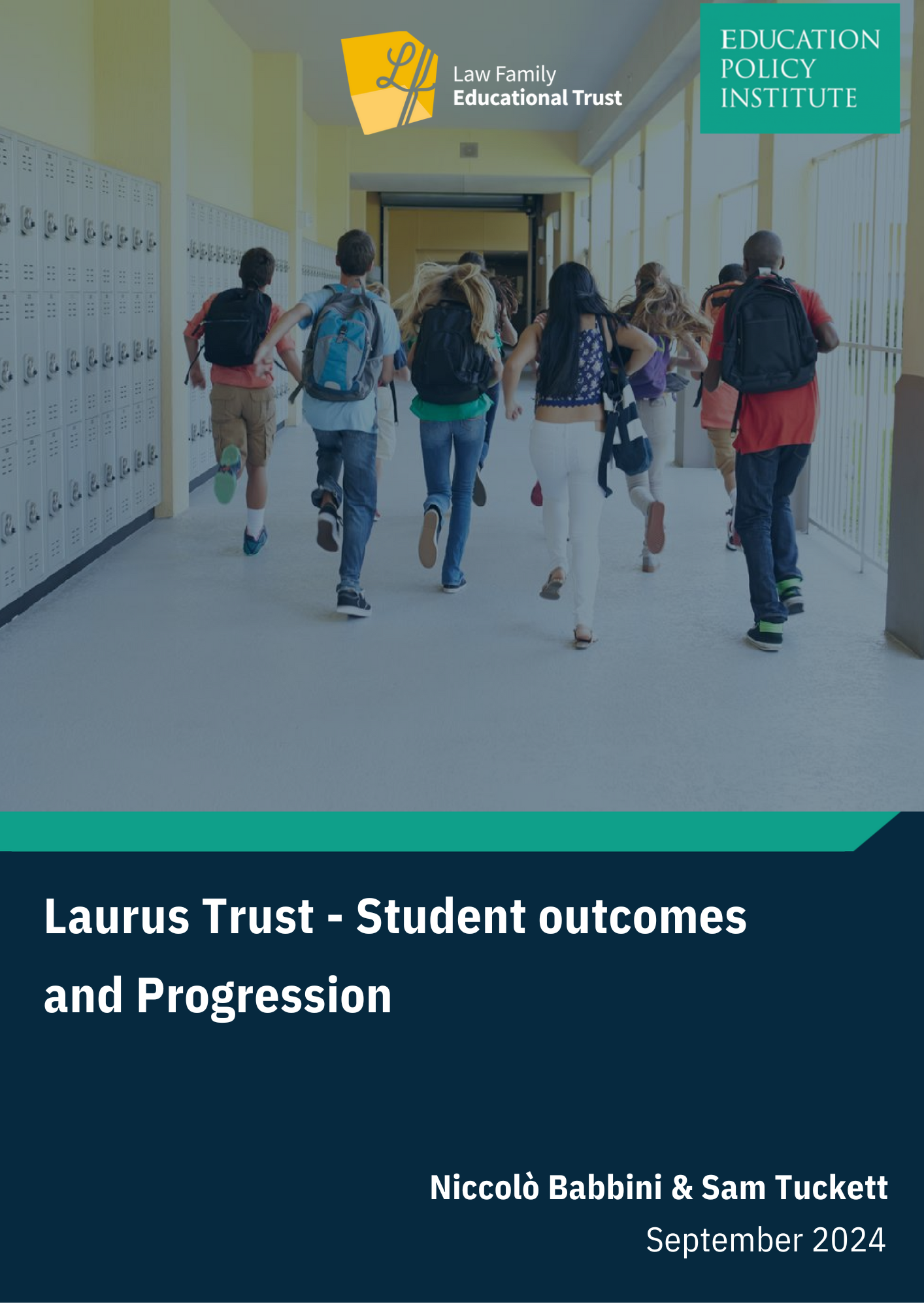This new report published by the Education Policy Institute and funded by the Law Family Educational Trust examines the outcomes and progression of students attending secondary schools in the Laurus Trust.
The report focuses on outcomes for students attending before and after the introduction of an extensive extra-curricular programme in 2017/18.
The new research builds on a previous report published in February by the EPI , which found that attending extra-curricular activities during secondary school is associated with a range of positive outcomes.
Today’s research is a new analysis of Laurus Trust student outcomes, compared to similar students in similar schools elsewhere, who on average will not have had access to the same level of extra-curricular provision. We also compare similar students within the trust before and after the introduction of the extra-curricular programme.
Although this analysis cannot be interpreted as fully causal, the report finds that:
- When controlling for student characteristics, students who attended the Laurus Trust after the rollout of the EC programme achieved Attainment 8 scores 6.2 points higher than their peers who attended the Trust before the EC rollout, and 3.1 points higher than their peers nationally. A difference of one point is broadly equivalent to an average increase of one grade in a GCSE subject.
- Compared with similar students in England, disadvantaged students who attended the Laurus Trust after the rollout of the EC programme achieved higher Attainment 8 scores by 5.3 points, on average.
- When comparing similar students within the Trust, we found that those who attended after the introduction of the EC programme had lower rates of persistent absence (a decrease in odds of 87 per cent). For example, if 9/100 students were persistently absent before the rollout of the EC programme, this change in odds would correspond roughly to 1/100 students afterwards.
- Having controlled for characteristics, Laurus Trust students that attended after the EC rollout were more likely to enter A levels than those attending beforehand, and this difference was statistically significant. The difference was equivalent to an increase in the odds of entering A levels of 220 per cent. For example, if 60/100 students entered A levels before the rollout of the EC programme, this change in odds would correspond to around 83/100 students afterwards.
- Students at the Laurus Trust were, on average, more likely to enter higher education than other students in England and Greater Manchester, but this difference was not significant when accounting for student and school characteristics.
You can download and read the report in full here.

This report has been kindly funded by the Law Educational Family Trust. Find more info on them here.

